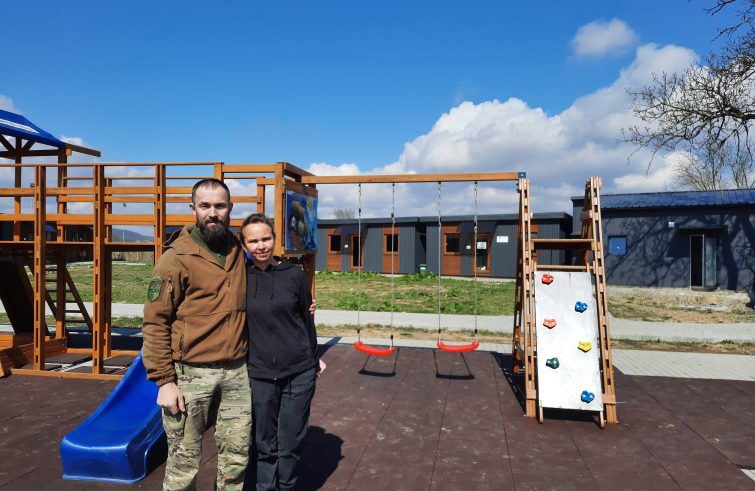
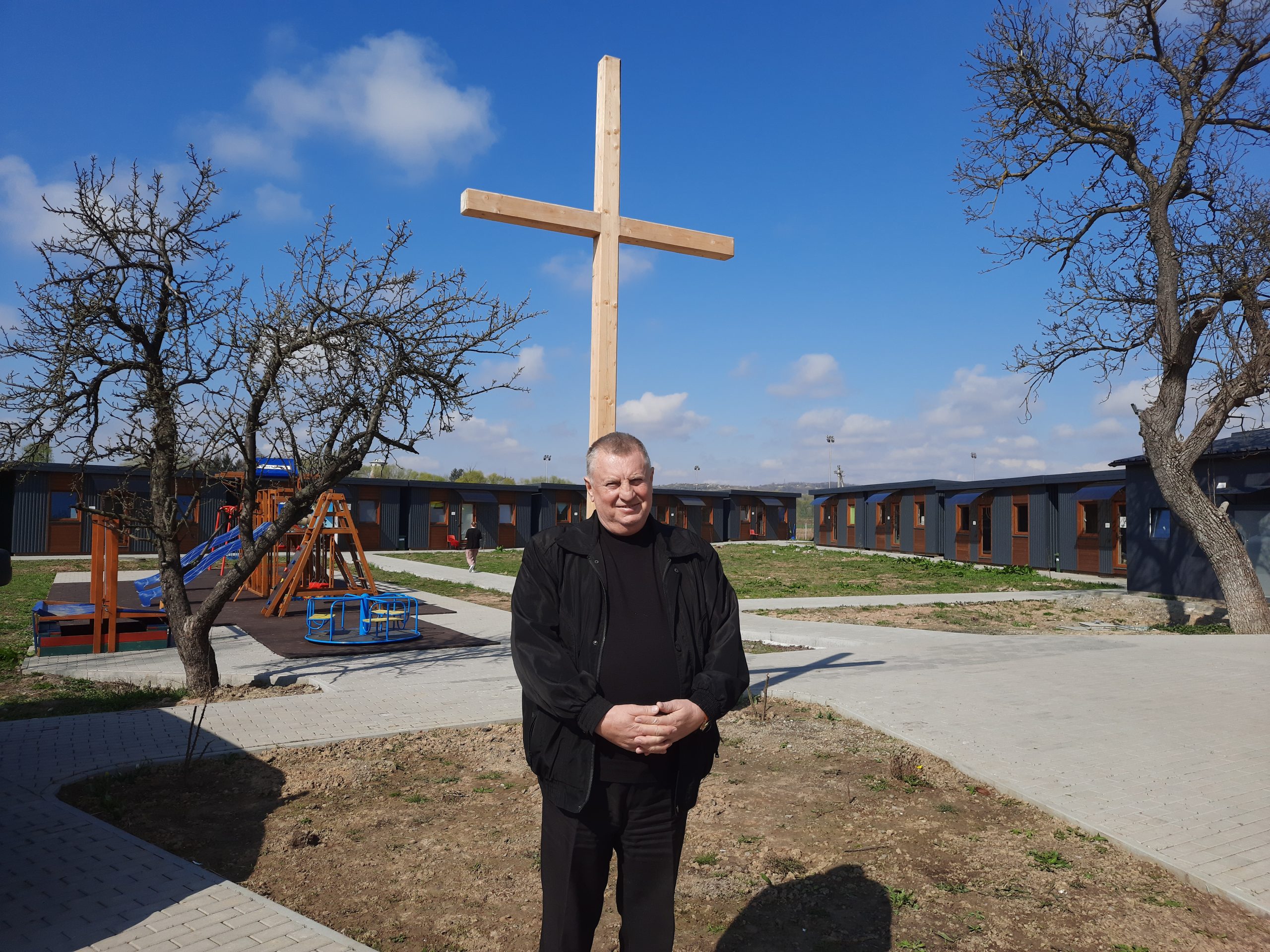 (from Mukachevo) The hardest task in war is informing a child or a teenager that one of their parents has died, either fighting on the front line or killed by a landmine. Mariupol’s children are permanently scarred. The war has robbed them of their childhoods and their families, but not of their future. In the town of Seredneie, 20km from Mukachevo, there is a home that houses 21 children from Mariupol. They called it the “Ark”, after Noah’s boat in the Biblical narrative. But the “flood” from which they were rescued were not the waters of the stormy sea. It was war. Father Petro Zharkovsky, Vicar General of the Roman Catholic Church of Mukachevo in Transcarpathia, is the ‘angel’ who brought them to the Home. In 2014, the local church in Mariupol set up shelters for mothers and their children while their fathers were on the front line in Donbass.
(from Mukachevo) The hardest task in war is informing a child or a teenager that one of their parents has died, either fighting on the front line or killed by a landmine. Mariupol’s children are permanently scarred. The war has robbed them of their childhoods and their families, but not of their future. In the town of Seredneie, 20km from Mukachevo, there is a home that houses 21 children from Mariupol. They called it the “Ark”, after Noah’s boat in the Biblical narrative. But the “flood” from which they were rescued were not the waters of the stormy sea. It was war. Father Petro Zharkovsky, Vicar General of the Roman Catholic Church of Mukachevo in Transcarpathia, is the ‘angel’ who brought them to the Home. In 2014, the local church in Mariupol set up shelters for mothers and their children while their fathers were on the front line in Donbass.
But in 2022 they received a phone call: “Gather everyone and get out now.”
The war, with all its violence, terror, death and destruction, raged across the country, within days, it was to reach the city of Mariupol. Warfare broke out on 18 February 2022. The children, 36 in all, aged between 2 and 18, were evacuated between 20 and 24 February. They were loaded into minibuses and driven to safety in the western area of the country. It was a daring escape. They were taken first to Poland, where they stayed for four months, and then to Italy, to the village of Castelmonte, for another two months. Meanwhile, in Mukachevo, a “European” solidarity race was launched for the renovation of a building; contacts were made with local schools; the Czech Caritas provided 12 small mobile homes. The Curia in Slovakia provided the money to buy furniture.
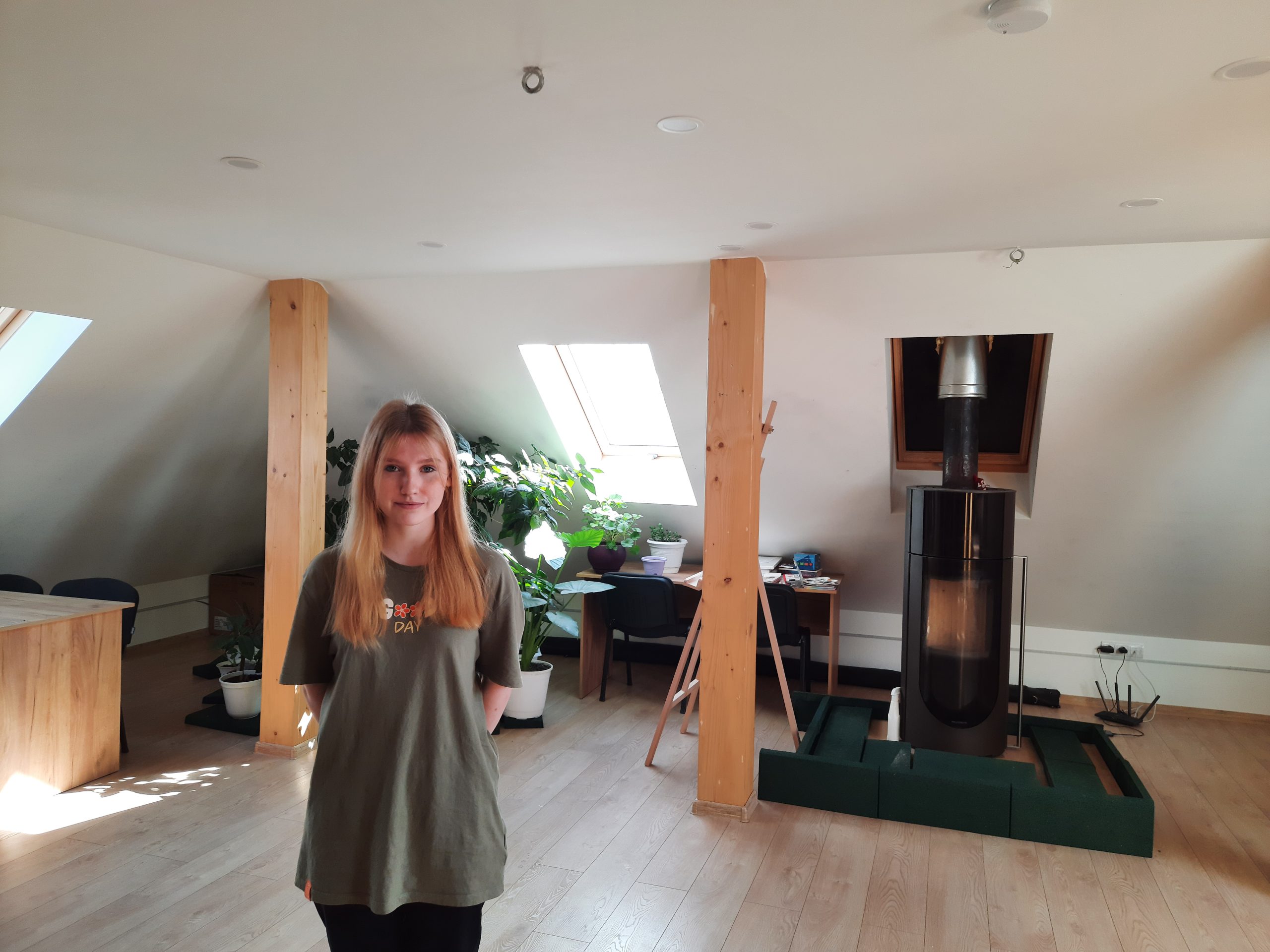 Theirs are stories of suffering and death. Volodymyr and his wife Oksana, who run the Home, shared those stories with SIR. They told us the story of a boy. “His greatest hope had always been to embrace his mother again one day,” says Volodymyr. “When we heard that his mother had died, we didn’t know how to break the news to him. We waited three months. We needed time to prepare him for this tragic truth and to find the right moment. When we told him, he cried desperately for several days.” Another boy, now 14, also housed in the Home, has a similar experience. His mother used to work as a nurse at Mariupol Hospital No 4. She remained in the city “because she wanted to help people. She was killed in a landmine explosion. “She was a strong, brave woman,” says Oksana. “She helped people in need to the very end. She gave her life for them. Our words to him were that she is now an angel in heaven. He replied that his mother was an heroine.” Kira, 18, with blue eyes and blonde hair, said she had missed a year of school because of the war. But she would “finally” graduate in June. She too is alone. Her mother is still in Mariupol due to prolonged illness, though “it’s difficult to get treatment there.”
Theirs are stories of suffering and death. Volodymyr and his wife Oksana, who run the Home, shared those stories with SIR. They told us the story of a boy. “His greatest hope had always been to embrace his mother again one day,” says Volodymyr. “When we heard that his mother had died, we didn’t know how to break the news to him. We waited three months. We needed time to prepare him for this tragic truth and to find the right moment. When we told him, he cried desperately for several days.” Another boy, now 14, also housed in the Home, has a similar experience. His mother used to work as a nurse at Mariupol Hospital No 4. She remained in the city “because she wanted to help people. She was killed in a landmine explosion. “She was a strong, brave woman,” says Oksana. “She helped people in need to the very end. She gave her life for them. Our words to him were that she is now an angel in heaven. He replied that his mother was an heroine.” Kira, 18, with blue eyes and blonde hair, said she had missed a year of school because of the war. But she would “finally” graduate in June. She too is alone. Her mother is still in Mariupol due to prolonged illness, though “it’s difficult to get treatment there.”
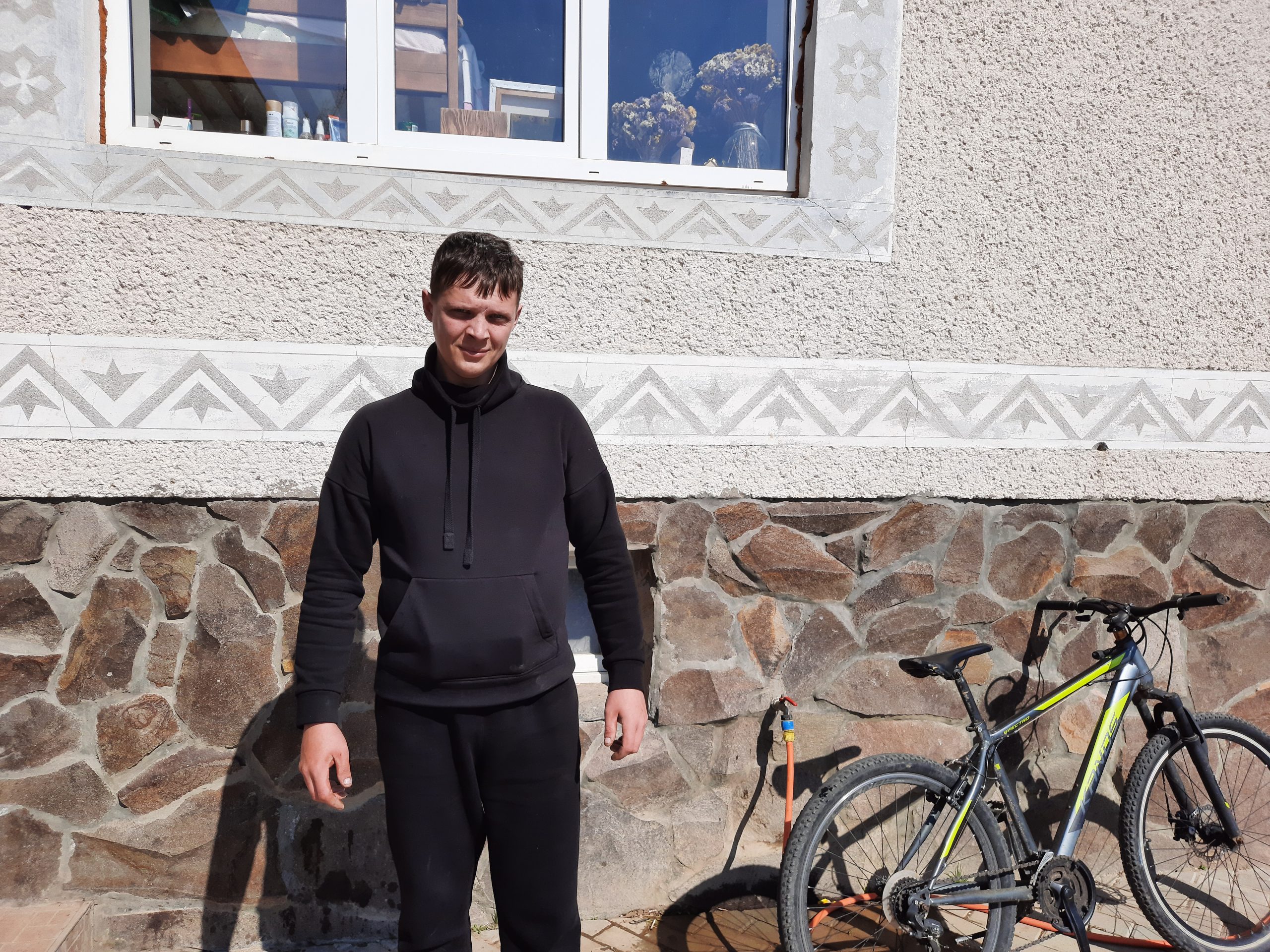 Those children and young people have breathed “the odour of death”, says Volodymyr. “They lived through the war, but their greatest pain is to be separated from their loved ones. Our main concern is to give them all the love we can, as much as possible, here. We realise that no one will ever be able to replace their mothers and fathers. The scars from these wounds will never fade.” But they do react. They are being helped by a team of psychologists. They are continuing their education. They are getting good grades at school. One of the girls got married recently and decided to celebrate her wedding here in the centre. Every morning and evening, all the young guests meet in a large, renovated hall on the grounds of the centre to start the day together and later to share their thoughts about the day. Prayers are said. There is singing. Volodymyr plays the guitar. A little girl, the youngest, dances. “The most important thing is for everyone to go to sleep in peace, without having to worry about anything. Will they be able to return to Mariupol one day? “We cherish that hope,” Volodymyr replies. “Because our roots are there. But for now, going back is not an option. The situation there makes it impossible.”
Those children and young people have breathed “the odour of death”, says Volodymyr. “They lived through the war, but their greatest pain is to be separated from their loved ones. Our main concern is to give them all the love we can, as much as possible, here. We realise that no one will ever be able to replace their mothers and fathers. The scars from these wounds will never fade.” But they do react. They are being helped by a team of psychologists. They are continuing their education. They are getting good grades at school. One of the girls got married recently and decided to celebrate her wedding here in the centre. Every morning and evening, all the young guests meet in a large, renovated hall on the grounds of the centre to start the day together and later to share their thoughts about the day. Prayers are said. There is singing. Volodymyr plays the guitar. A little girl, the youngest, dances. “The most important thing is for everyone to go to sleep in peace, without having to worry about anything. Will they be able to return to Mariupol one day? “We cherish that hope,” Volodymyr replies. “Because our roots are there. But for now, going back is not an option. The situation there makes it impossible.”
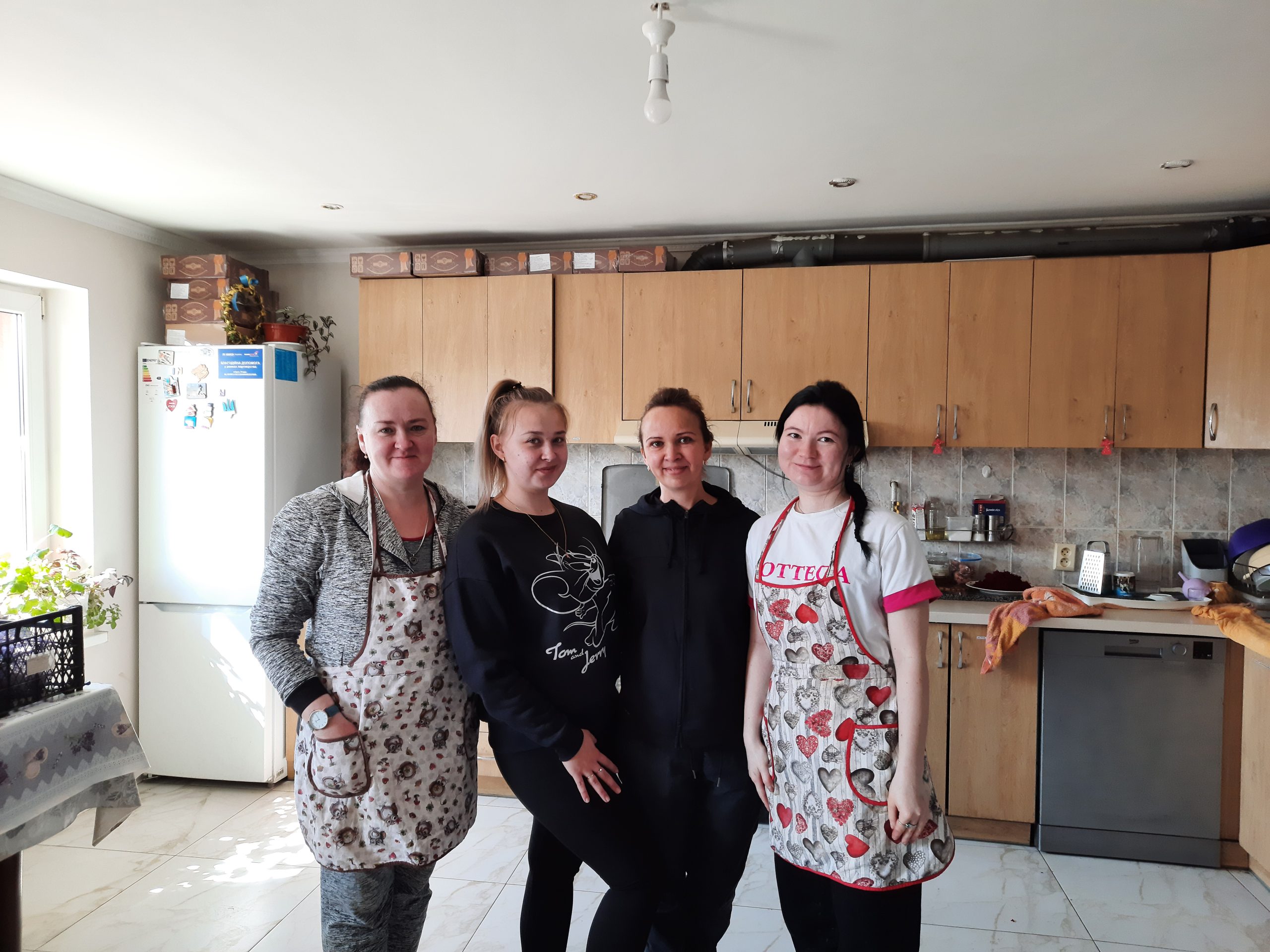 “All we want is for them to be happy,” says Oksana. “Watching the news on television makes me burst into tears. News of children dying,” she adds. Her thoughts go out to the children in the occupied territories, those left without water or food, but especially those who have been abducted by the Russian forces and whose fate is unknown. “The war has taken away their childhood. We pray that God will stop this war. And we thank all the people of Italy who have helped us. We ask you to pray for us and for peace”.
“All we want is for them to be happy,” says Oksana. “Watching the news on television makes me burst into tears. News of children dying,” she adds. Her thoughts go out to the children in the occupied territories, those left without water or food, but especially those who have been abducted by the Russian forces and whose fate is unknown. “The war has taken away their childhood. We pray that God will stop this war. And we thank all the people of Italy who have helped us. We ask you to pray for us and for peace”.









